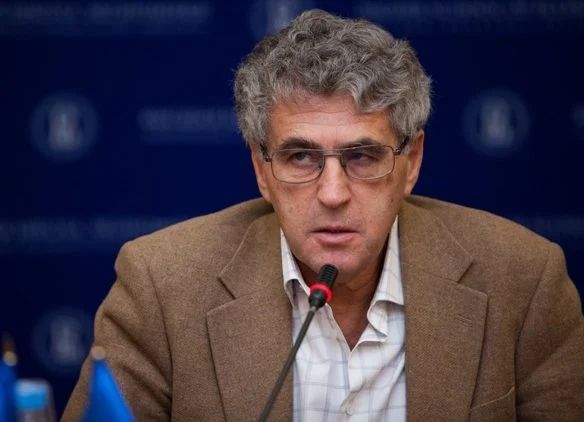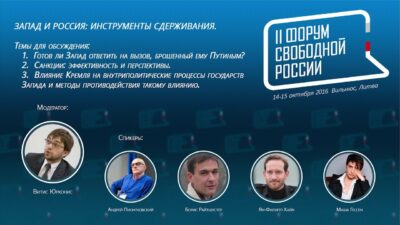
Preparing for a conference, I unexpectedly formulated the theses of a report that I could have delivered at a gathering of all humanity, if it had decided to listen to me.
1. Putin has destroyed Russia. The REAL conditions for its revival are the victory of Ukraine and the elimination of the Putin regime. The situation is exactly the same as in 1945: the military defeat and destruction of the Third Reich opened the way for the rebirth of Germany.
2. Russian citizens who support the demand to provide offensive weapons to Ukraine are acting in the interests of the Russian people.
3. The liberation of Crimea will be a turning point in Russia’s development. It will entail the deepest political crisis in Russia, one possible outcome of which could be a palace coup and Putin’s removal from power.
4. A prolonged positional war will weaken Putin’s regime, but it will not make it any less aggressive. On the contrary, the level of external aggression (as well as internal repression) will only increase, as will the likelihood of using nuclear weapons.
5. Putin is deeply inadequate, his view of the world has long been divorced from reality, guided not by rational calculation, but by his own illusions and ambitions. It makes no sense to approach him as a possible partner.
6. If Putin’s regime persists after Ukraine has liberated all its territories, there will be no lasting peace. In fact, it will only be a temporary cease-fire – in a short time the regime will launch a new aggression, possibly moving the war to EU and NATO territory.
7. The Putin regime’s capitulation is also possible without occupying Russian territories.
8. The Russian people’s support for the war is greatly exaggerated; the results of opinion polls can be interpreted quite differently. People are distanced from the state, preferring not to confront it even with “wrong” answers in opinion polls. The population, with the exception of a very small group of pro-government activists, will support the war, just as they now support the opposite policy. This was already the case in Soviet times.
9. Imperial sentiments among the people of Russia are also exaggerated. The “imperial pains” did not arise when the Soviet empire was disintegrating, but only in the mid-nineties and were largely created by the authorities themselves. In the nineties there was not ONE rally demanding, for example, that any of the liberated republics be returned to the empire.
10. Putin, in reality, has no personal popularity. His speeches do not attract attention, there was no popular outcry over the warrant for his arrest and over the drone attack on the Kremlin, which the authorities declared an attempt on Putin’s life.
11. Russian society is far from unified, the level of internal division in the country has not been seen since the Civil War of the twentieth century. However, the educated residents of the big cities are pro-European and could well be the base of democratic transformation after Putin.
12. Western sanctions are effective and should be strengthened.
13. The European way is natural for Russia. In the words of Catherine the Great, “Russia is a European state”. There is no evidence that democracy in Russia is impossible or should be any different. The people of Russia are no different from any other people, including Europeans.
14. Democracy in Russia is a necessary condition for the security of Europe. After the dismantling of Putin’s regime, reparations, and the trial of war criminals, a program similar to the Marshall Plan will be needed. Moral support from the West for the European-oriented citizens of Russia is equally important. Declaring all Russians to be fascists and supporters of Putin is immoral and counterproductive.
15. The latest wave of Russian emigration are people who will be ready to return to Russia and build a new country. They are allies of Europe. Discrimination against them is unacceptable on either moral or pragmatic grounds.





